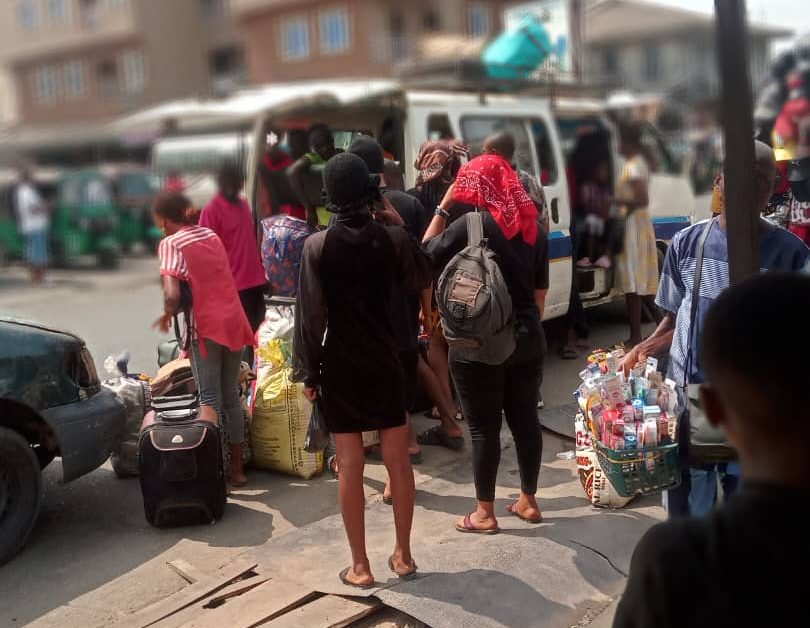As the Yuletide season winds down, people who traveled to their hometowns for the festivities are returning to their cities and residential areas to resume occupational and educational activities. Previously quiet residential streets are now bustling as returnees fill their neighborhoods once again.

However, the festive season’s end has brought a sharp increase in transport fares. Transporters have taken advantage of the period to impose higher charges on commuters.
A visit to the Aba main park by this correspondent revealed significant fare hikes. At Ochendo Park, it was gathered that Umuahia to Aba now costs ₦2,000, compared to the previous ₦1,500. Similarly, Aba to Port Harcourt, which used to range between ₦2,000 and ₦2,500, now costs ₦4,000 per seat.

Other routes have also seen sharp increases:
Item to Umuahia: ₦2,500 (formerly ₦1,000 – ₦1,500)
Aba to Owerri: ₦3,000
Aba to Calabar: ₦7,000
Aba to Arochukwu: ₦5,000
Aba to Lagos: ₦55,000 (at Libra Motors, GUO, and Chimezie Motors at Milverton Park)
Aba to Uyo/Ikot-Ekpene: ₦6,000
Even local transport services like tricycles (Keke), minibuses, and motorcycles (Okada) have arbitrarily increased their fares.
Passengers are not only burdened by inflated transport fares but also by exorbitant charges on baggage and waybills. A baggage weighing less than 20kg now costs between ₦1,500 and ₦2,500, depending on the travel distance.

One of the passengers, identified as Mama Ejima, expressed her frustration with the situation, blaming the government for failing to regulate the transport sector. She lamented that transporters were exploiting passengers despite the drop in fuel prices, which previously ranged between ₦1,500 and ₦1,700 per litre but now costs ₦1,030 to ₦1,035 in Aba.
Another passenger, Mr. Chidiadi Chinedu, shared a different perspective. While acknowledging the widespread practice of blaming the government for rising costs, he highlighted the greed and exploitation by transport operators as a major factor. He expressed optimism that transport fares would normalize by the end of January 2025.

























